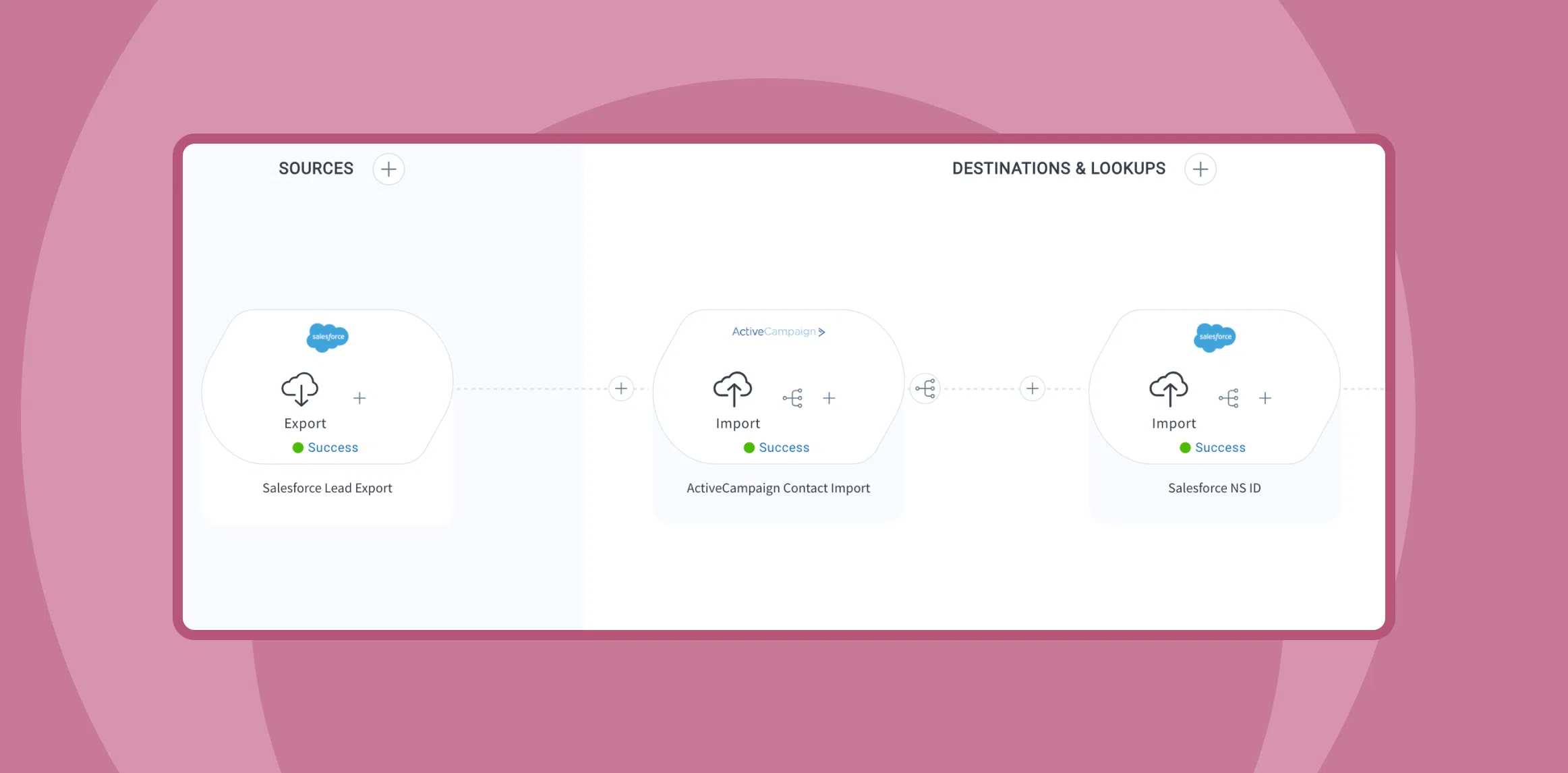Published Aug 5, 2024
What is marketing automation lead management?

In digital marketing, staying ahead of the competition requires more than just traditional strategies. Marketing automation lead management is a game-changing approach that optimizes and streamlines the process of capturing, nurturing, and converting leads. This article delves into the essentials of marketing automation lead management, its significance, and its transformative impact on modern marketing strategies.
What is marketing automation lead management?
To fully appreciate the power of marketing automation lead management, it’s essential to understand the individual components and how they integrate.
Marketing automation refers to the use of software platforms and technologies designed to automate repetitive marketing tasks. These tasks can include email marketing, social media posting, ad campaigns, and more, enabling businesses to streamline their marketing efforts and improve efficiency. Marketing automation platforms like HubSpot, Marketo, and Pardot offer robust tools to manage these tasks seamlessly.
Lead management is the process of tracking and managing prospective customers (leads) throughout the various stages of the sales funnel. It involves capturing leads, tracking their interactions, nurturing them with relevant content, and ultimately converting them into customers. Effective lead management ensures that no potential customer slips through the cracks and that every lead is given the attention needed to move through the sales funnel.
When combined, marketing automation and lead management create a robust system that automates the nurturing of leads through the sales funnel. This integration ensures that leads receive personalized and timely communications, improving the chances of conversion and enhancing the overall customer experience.
How marketing automation works
Marketing automation platforms typically work by using a combination of triggers, actions, and conditions to automate tasks. Triggers are events that start an automated process, such as a lead filling out a form or clicking on a link. Actions are tasks that the system performs in response to a trigger, like sending an email or adding a lead to a nurturing campaign. Conditions are rules that determine whether an action should be performed, such as whether a lead has visited a certain page or downloaded a specific resource.
By setting up these automated workflows, marketers can ensure that leads receive the right content at the right time, without manual intervention. This not only saves time but also ensures that each lead’s journey is personalized and relevant.
The role of lead scoring
A critical component of marketing automation lead management is lead scoring. Lead scoring is a method used to rank leads based on their behavior and engagement with your marketing efforts. By assigning points to different actions (like opening an email, attending a webinar, or downloading a whitepaper), marketers can identify which leads are most likely to convert into customers.
High-scoring leads are typically those that have shown significant interest in your product or service, making them prime candidates for sales outreach. By focusing on these high-quality leads, sales teams can improve their conversion rates and close deals more efficiently.
Importance of marketing automation lead management
The importance of marketing automation lead management cannot be overstated. Here are some of the key reasons why this approach is critical for modern businesses:
Time-saving benefits
One of the most significant advantages of automating lead management tasks is the time it saves. Manual lead management can be incredibly time-consuming, requiring marketers to send emails, follow up on leads, and track their progress through the funnel. Automation handles these tasks efficiently, freeing up valuable time for marketers to focus on strategic planning and creative efforts.
Reducing human errors
Human errors in lead tracking and nurturing can lead to missed opportunities and lost sales. Marketing automation reduces the risk of these errors by ensuring that every lead receives consistent and accurate communication. Automated systems can track lead interactions, segment leads based on behavior, and trigger appropriate responses without the risk of human oversight.
Aligning marketing and sales teams
Marketing automation lead management fosters better alignment between marketing and sales teams. By providing a clear and automated process for lead nurturing, both teams can work together seamlessly to achieve common goals. Marketing teams can generate and nurture leads, while sales teams can focus on converting high-quality leads that are ready to make a purchase.
Data-driven decision making
Marketing automation platforms provide valuable data and insights into lead behavior and campaign performance. This data-driven approach allows marketers to make informed decisions, optimize their strategies, and improve overall marketing effectiveness. By analyzing metrics such as open rates, click-through rates, and conversion rates, marketers can identify what works and what doesn’t, enabling continuous improvement.
Key benefits of marketing automation lead management
Implementing marketing automation lead management offers numerous benefits that can significantly enhance a business’s marketing efforts. Here are some of the key advantages:
Streamlines lead nurturing
Effective lead nurturing is essential for converting prospects into customers. Marketing automation platforms enable businesses to streamline lead nurturing through automated emails, personalized content, and timely follow-ups.
Automated emails
Automated emails are a cornerstone of lead nurturing. By setting up email sequences triggered by specific actions or time intervals, businesses can ensure that leads receive relevant information at each stage of their journey. For example, a new lead might receive a welcome email, followed by educational content, case studies, and product demos over the next few weeks.
Personalized content
Personalization is key to engaging leads and building relationships. Marketing automation platforms can segment leads based on their behavior, preferences, and demographics, allowing businesses to deliver highly personalized content. Whether it’s addressing leads by their name, tailoring content to their interests, or recommending products based on their past behavior, personalization enhances the lead nurturing process.
Timely follow-ups
Timely follow-ups are crucial for keeping leads engaged and moving them through the sales funnel. Marketing automation ensures that follow-ups are prompt and relevant. For instance, if a lead downloads a whitepaper, the system can automatically send a follow-up email with additional resources or a call-to-action to schedule a demo.
Enhances lead scoring
Lead scoring is a crucial aspect of lead management that helps prioritize high-quality leads for sales teams. Marketing automation platforms can assign scores to leads based on their interactions with the business, such as website visits, email opens, and content downloads. High-scoring leads are more likely to convert, enabling sales teams to focus their efforts on the most promising prospects.
Improves customer experience
A positive customer experience is vital for building long-term relationships and driving sales. Marketing automation enhances the customer experience by delivering personalized and relevant content at each stage of the buyer’s journey. Automated responses and tailored content show leads that the business understands their needs, fostering a sense of connection and loyalty.
Personalization and engagement
Personalization goes beyond addressing leads by their names. It involves understanding their needs and delivering content that resonates with them. Marketing automation platforms can track lead behavior and preferences, allowing businesses to create personalized experiences. For example, if a lead shows interest in a particular product category, the system can recommend related products or offer special discounts.
Consistent communication
Consistent communication is essential for maintaining a strong relationship with leads. Marketing automation ensures that leads receive regular updates, newsletters, and promotional offers. This consistent touchpoint keeps the brand top-of-mind and reinforces the relationship with the lead.
Boosts conversion rates
Targeted marketing efforts through automation can significantly boost conversion rates. By delivering the right message to the right lead at the right time, businesses can effectively guide prospects through the sales funnel and encourage them to take action. Automated workflows ensure that no lead is neglected, increasing the likelihood of conversions.
Targeted campaigns
Marketing automation enables businesses to run targeted campaigns based on lead behavior and preferences. For instance, if a lead frequently visits the pricing page, they might be interested in making a purchase. The system can trigger a targeted campaign with special offers or case studies to address any concerns and drive the lead towards conversion.
A/B testing
A/B testing is a powerful technique for optimizing marketing efforts. Marketing automation platforms allow businesses to test different versions of emails, landing pages, and calls-to-action to determine which ones perform best. By continuously testing and optimizing, businesses can improve their conversion rates and achieve better results.
Scalability
As businesses grow, managing an increasing number of leads can become challenging. Marketing automation provides scalability, allowing businesses to handle large volumes of leads without compromising on quality. Automated systems can efficiently manage and nurture leads, ensuring that every prospect receives the attention they deserve, regardless of the business’s size.
Managing large volumes
Scalability is crucial for businesses looking to expand their reach and generate more leads. Marketing automation platforms can handle thousands of leads simultaneously, ensuring that each lead receives personalized and timely communication. This capability is especially important for businesses with limited resources, as it allows them to manage large volumes of leads without hiring additional staff.
Expanding campaigns
As businesses grow, they may need to expand their marketing campaigns to reach new audiences. Marketing automation platforms can easily accommodate this growth by allowing businesses to create and manage multiple campaigns simultaneously. Whether it’s launching new products, entering new markets, or targeting different segments, marketing automation provides the flexibility needed to scale marketing efforts.
Sales insights
Marketing automation tools offer valuable insights into the sales cycle, providing businesses with a clearer understanding of their lead management processes. These insights can include metrics such as the average time leads spend in the sales funnel, conversion rates, and the effectiveness of various marketing campaigns. This data-driven approach enables businesses to refine their strategies and make informed decisions.
Analyzing sales cycle
Understanding the sales cycle is essential for optimizing lead management processes. Marketing automation platforms provide detailed analytics on how leads move through the sales funnel, including the average time spent at each stage and the conversion rates. By analyzing this data, businesses can identify bottlenecks and areas for improvement, allowing them to optimize their sales cycle and close deals more efficiently.
Campaign performance
Marketing automation platforms offer comprehensive reporting on campaign performance, including metrics such as open rates, click-through rates, and conversion rates. These insights enable businesses to evaluate the effectiveness of their marketing efforts and make data-driven decisions. For example, if a particular email campaign has a high open rate but low click-through rate, businesses can experiment with different content or calls-to-action to improve engagement.
Conclusion
Lead management is a powerful strategy that can transform the way businesses approach lead nurturing and conversion. By automating repetitive tasks, reducing human errors, and fostering alignment between marketing and sales teams, businesses can achieve greater efficiency and effectiveness in their marketing efforts. The benefits of streamlined lead nurturing, enhanced lead scoring, improved customer experience, boosted conversion rates, scalability, and valuable sales insights make marketing automation lead management an indispensable tool for modern marketers.
Marketing automation lead management not only saves time and reduces human errors but also ensures that every lead receives personalized and timely communication. This approach enhances the customer experience, fosters better alignment between marketing and sales teams, and provides valuable insights for continuous improvement.
Ready to revolutionize your marketing strategy? Try Celigo for free today and experience the transformative power of marketing automation lead management. With the right tools and strategies, you can streamline your lead management processes, boost conversion rates, and achieve your business goals more efficiently than ever before.




